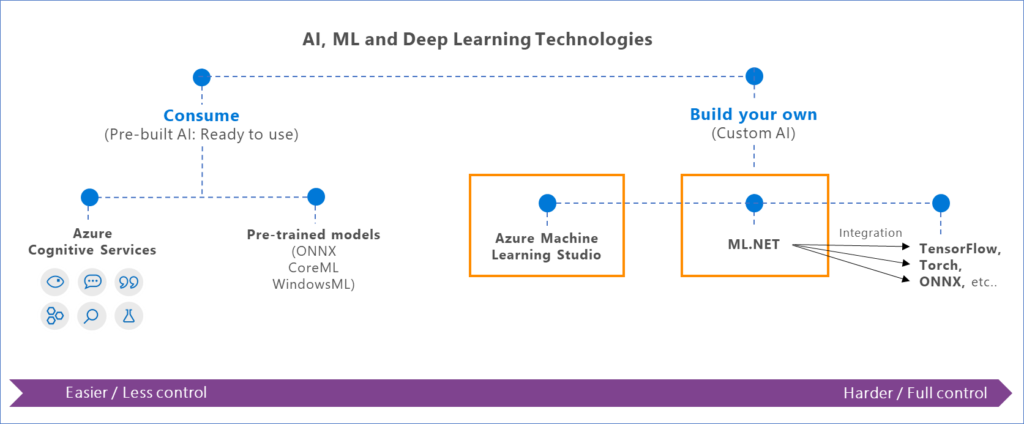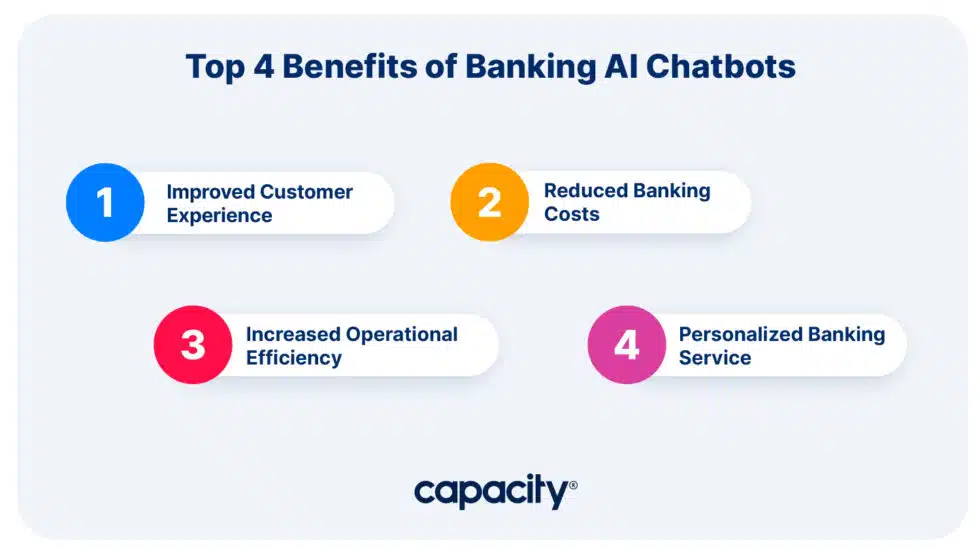Developments in processes and applications go together with changing times. The rapid advancement of technology is causing a significant shift in the banking industry.
Artificial intelligence (AI) is particularly changing how banks engage with their clientele, ushering in a new era of productivity and client happiness within a well-structured customer experience.
But how do banks provide a more individualized touch? Here’s where AI in Banking can be useful. While you may already be using predictive AI for fraud detection, credit scoring, ticket routing, and customer attrition prediction, generative AI may assist in the creation of fresh content that significantly enhances customer service interactions.
Challenges with Traditional Banking
Customer service in banking is not a simple task. In finance, the challenges are quite high. Even a tiny error can have a big financial effect on a customer, increasing the workload and risk of burnout for support workers.
Scalability is a problem for account managers who have a heavy caseload of customers as well as for customer service. Customers find it challenging to get in touch with their manager quickly due to the backlog of voicemails and emails, which causes irritation and delays in attending to their needs—even for basic requests.
Not to mention that contemporary banking is open around-the-clock. Clients anticipate having access to assistance from any time zone, at any time. A 24-hour workforce is necessary to meet this goal with a human team, which is costly and difficult to manage.
These difficulties demonstrate why conventional customer service methods find it difficult to stay relevant. AI-powered chatbots can help in this situation by providing assistance to both consumers and support personnel.
Scenarios where AI in Banking is Important
To emphasize the potential benefits of AI in Banking Customer Service. Innovation in AI has the potential to yield a priceless combination of loyalty and satisfaction in the Banking sector.
-
Transforming Interaction with Customers
Virtual assistants with AI capabilities are currently dominating the banking customer service scene. These conversational AIs are able to comprehend natural language inquiries, respond right away, and even learn from every contact in order to get better over time. Customers receive faster, more accurate help as a consequence, which boosts their happiness and loyalty.
Artificial intelligence (AI)-powered virtual assistants are revolutionizing the way consumers engage with their banks, whether they are seeking advice, checking on a transaction, filing a complaint, or applying for a loan.
-
Simplifying the Interaction with Agents
Artificial Intelligence is streamlining the experience for bank employees and enhancing things for both parties.
By making use of this technology, platforms can enable agents to obtain information from approved knowledge sources fast, cut down on the amount of time they spend looking for solutions, and eventually speed up reaction times. These improvements raise productivity and increase the agent experience, which together produce improved customer service results.
-
Customization Using Machine Learning
However, AI offers banks customer service advantages that go beyond increased productivity. Banks may obtain significant insights into client preferences and activity by utilizing machine learning algorithms. This allows them to provide more tailored services and predict customer requirements before they exist.

-
Defending Against Fraud
In the absence of strict, enterprise-grade data protection and security controls, customer discussions with the bank may be susceptible to fraud and loss. Particularly in light of the epidemic, clients are being inundated with flimsy or fraudulent relief plans that frequently have scam connections.
Artificial intelligence (AI)-enabled chatbots can quickly recognize suspicious conduct and notify both the consumer and the bank, allowing customers to continue interacting with banks without any worries.
-
Improving Back-end Operations
Artificial Intelligence is not only improving client interactions but also has a significant impact on bank backend activities. AI algorithms are assisting banks in identifying and mitigating possible dangers more successfully than ever before, from detecting fraud to risk analysis. Customers are protected by this, and the financial sector as a whole gains more credibility.
-
Overseeing Internal Activities
It is not possible for the customer service crew to spend the entire day answering the same old, tiresome queries from clients. However regrettably, in many organisations with narrow goals,
Typically, customer service representatives are overworked and overburdened with repetitive, back-office tasks like organizing internal paperwork or onboarding new hires. They never get to start working on the more difficult and ambitious responsibilities of designing meaningful client experiences because they are too busy with regular jobs.
AI-driven chatbots may collaborate with these teams to handle the majority of internal tasks as well as time-consuming, repetitive inquiries on their own, freeing up the agents to use their creativity and inventiveness more freely.
-
Constant Enhancement via Instantaneous Feedback
Additionally, banks can collect real-time feedback from client interactions thanks to AI-powered analytics, which enables them to continually enhance and optimize their service offerings so they can concentrate on providing value and outcomes for customers.
Through the use of consumer data insights, banks have the ability to pinpoint consumer issues, optimize workflows, and improve overall service quality, all of which contribute to increased client happiness and loyalty.
Potential for AI chatbots in banking customer service
Chatbots, driven by advanced algorithms, are capable of processing and comprehending human language with surprising subtlety, and they can address a broad range of client inquiries. A degree of comprehension and response like this significantly improves the customer experience, building contentment and trust.

But personalization is just as important as efficiency. Your financial history and preferences are used by these chatbots to customize their replies, making every conversation feel meaningful and personalized.
These chatbots, based on your data, are capable of locating suitable responses to any query. Every encounter they have broadens their knowledge base, which helps them become more skilled at resolving client concerns, offering tailored guidance, and even identifying and stopping fraud.
AI chatbots are installed inside your company’s secure environment and run on special servers to protect critical data in order to guarantee the highest level of security. By reducing the possibility of outside intrusions and unauthorized access, this strategy preserves the integrity of consumer interactions.
AI’s Possible Dangers in Banking Services
Undoubtedly, the emergence of Artificial Intelligence (AI) has brought about a new phase of efficiency and creativity in a variety of businesses. AI’s capacity to evaluate enormous volumes of data helps businesses, especially in the financial industry, to improve customer experiences, optimize processes, and make better choices. However, there is a hidden danger underneath these seeming benefits. The increased dangers of fraud and safety risks that AI in Banking may present are a major source of worry.
Parangat- Providing the Best of AI in Banking Customer Services
AI has the ability to improve bank efficiency in a variety of ways, from risk assessments to the detection of fraud and money-laundering. But the true opportunity for market distinction lies in enhancing consumer experiences, and Parangat provides the best of customer experiences. Banks may capitalize on this by investing in AI-driven customer service solutions that prioritize 24/7 convenience and win over both new and returning clients.
At Parangat, we help you update your customer service and harness the potential of AI solutions that are customized to your requirements and goals. Get in touch with Parangat for more information on this topic.




